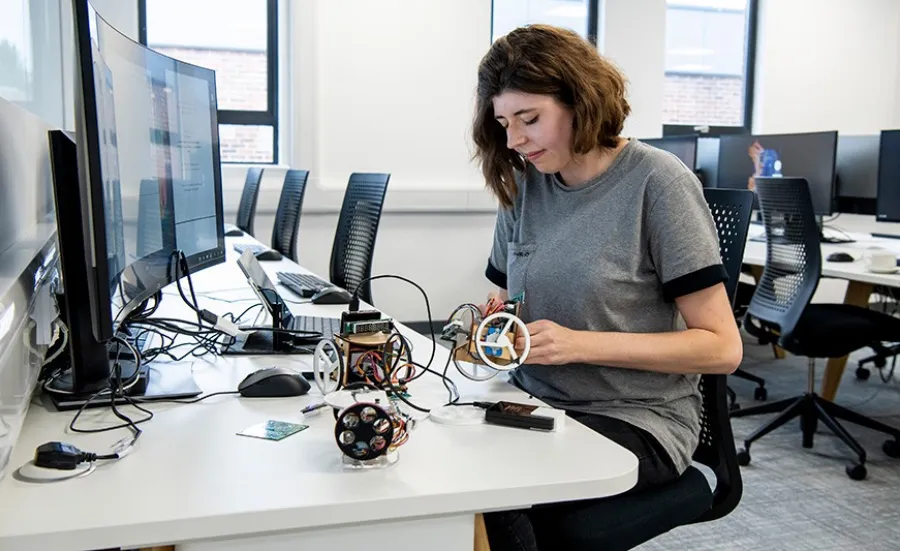Current research degree projects

Explore our current postgraduate research degree and PhD opportunities.

Explore our current postgraduate research degree and PhD opportunities.

This project extends dynamic combinatorial chemistry to oligonucleotides, creating libraries that respond to templating. It involves synthesising tailored nucleoside analogues and developing analytical tools using mass spectrometry and spectroscopy. Applications include sequencing, sensing, and aptamer formation, enabling novel biotechnology systems through adaptive, reversible chemistries for selective molecular recognition.
This project targets mRNA IRES structures of oncogenes using modified oligonucleotides to avoid broad translational inhibition. We will optimise ON modifications, transfection, and efficacy in organoids, focusing on lung and blood cancers. The goal is an adaptable, highly selective technology for precise regulation of multiple oncoproteins.
This project develops targeted delivery of antisense oligonucleotides for lung diseases such as cancer, asthma, and COPD. Conjugates will target lung cell receptors, with optimised linkers for recognition, transfection, and endosomal release. Designed for lung deposition, the system will be tested in organoid models, enabling novel, animal-free therapies.
PCR has transformed DNA research but relies on specialised equipment. This project aims to develop a reversible linkage system forming dynamic oligonucleotide libraries to template DNA replication. The approach will be used to evolve novel ligases and polymerases, ultimately enabling medicinal applications, including targeted therapies for various cancers.
This project aims to develop new early fault-tolerant quantum algorithms for drug discovery. You’ll design next-generation quantum algorithms, apply them to binding affinity, free-energy and spectroscopic predictions, and test them on real quantum hardware—advancing foundational theory, practical software development, and quantum use-cases.
Extreme bursts in fluid flows are hard to predict and control. This project develops modern optimisation and dynamical-systems tools to understand and limit these events using low-dimensional models.
Do a PhD as part of the CRUK Cancer Data-Driven Detection (CD3) project, developing advanced AI models that integrate clinical and omic data to improve cancer risk prediction. This PhD program offers training in machine learning, health data science, and multimodal analytics, working closely with clinicians and data scientists to develop next-generation, equitable risk-prediction tools.
Deep learning has been a driving force behind the rapid progress of AI for more than a decade, culminating recently in the success of large language models powered by transformer architectures—a class of deep neural networks. In parallel, bilevel optimization has emerged as a powerful framework for modeling complex machine learning tasks, giving rise to what we refer to as deep bilevel learning. This PhD project will investigate the mathematical foundations of deep bilevel learning, with the goal of uncovering structural properties that can be exploited to design more efficient, robust, and explainable learning algorithms. The results have the potential to influence the next generation of AI systems and advance theory at the intersection of optimization and deep learning.
Climate and political shocks can trigger clustered defaults across interconnected financial networks. This PhD project will develop deep learning models and network-based stress testing tools to assess how such events impact credit risk and financial stability, using real nationwide microentrepreneur data in a partnership with a leading microfinance institution.
This PhD aims to understand how people living with long-term health conditions (LTCs) can better build resilience to climate change. Working with vulnerable communities the researcher will use individual narratives and real-time momentary analysis to establish how LTCs impact adaptive capabilities during weather extremes.